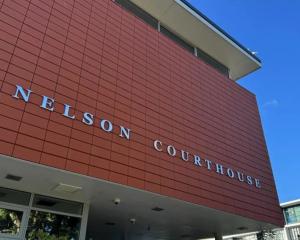A woman has died after being mauled by a shark at Waihi Beach in Bay of Plenty, despite desperate first aid provided on the beach.
It is understood the woman was dragged from the water alive and paramedics administered CPR, to no avail.
Western Bay of Plenty Katikati-Waihi Beach ward councillor Anne Henry believes the incident took place at the Bowentown end of the beach.
Western Bay of Plenty Mayor Garry Webber said the death was an "awful situation".
Waihi Beach is a holiday destination for Kiwis, Webber says, with its population swelling at this time of year from about 4000 people up to about 20,000.
He has lived in the Bay of Plenty area permanently since 1998 and can't ever remember a shark attack in the region.
"When these things happen your thoughts immediately go to the family," Webber said.
"And particularly the responders, the coastguard, the ambulance, air rescue helicopter, who had to attend. You really feel for them."
Shark expert: Great white sharks in the area
Shark scientist Riley Elliott says it's hard to speculate what species of shark attacked the woman without all the facts.
However, there had been evidence of juvenile and immature great whites in the area as of last summer.
Emergency services were called to the beach about 5.10pm after reports of a woman being injured in the water, police said in a statement.
She died a short time later. The death has been referred to the Coroner.
Elliott says bronze whalers are more common in the area than great whites but they haven't had an adverse interaction with a human in a very long time.
"It's very uncommon to have shark attacks in New Zealand in the world in general, especially fatal ones," he said.
"Shark attacks are incredibly rare and if you see one[shark], remain calm, alert people around you, and calmly vacate the water."
Elliott's thoughts were also with the family and friends of the woman, describing it as a "tragic" incident.
Shark attacks around the world are fairly uncommon given the number of people who swim in their domain, rarer still fatal attacks, Elliot said.
St John sent two ambulances, a first response unit, and a helicopter initially, a spokeswoman told The New Zealand Herald.
The TECT Rescue Helicopter was called to the scene about 5.15pm, a spokesperson for the Philips Search and Rescue Trust said.
The helicopter landed but was stood down at the scene as the patient had died.
Henry says locals were feeling for the victim and their family.
"It's just an absolute tragedy," she said.
"Obviously, we're all very concerned that a life has been taken."
She did not believe the incident would impact the appeal of the beach town for local tourists.
Last week, a Rotorua family were turned away from the beach by lifeguards twice after sharks were seen in the water.
Surf Life Saving New Zealand national search and rescue manager Allan Munday says people need to respect ocean-animals.
"We know that these animals are ever-present in our environment. What we ask people to do is always be vigilant, respect the animals - it's their home, not ours."
Mundy said Surf Lifesaving did not have the power to close the beach; that decision was made by either the regional or city council.
"It comes down to where the attack actually happened. The circumstances of the attack, which are still very sketchy at this point in time ... it will come down to the regional council.
"They will have a lot of information at their disposal prior to making that decision."












